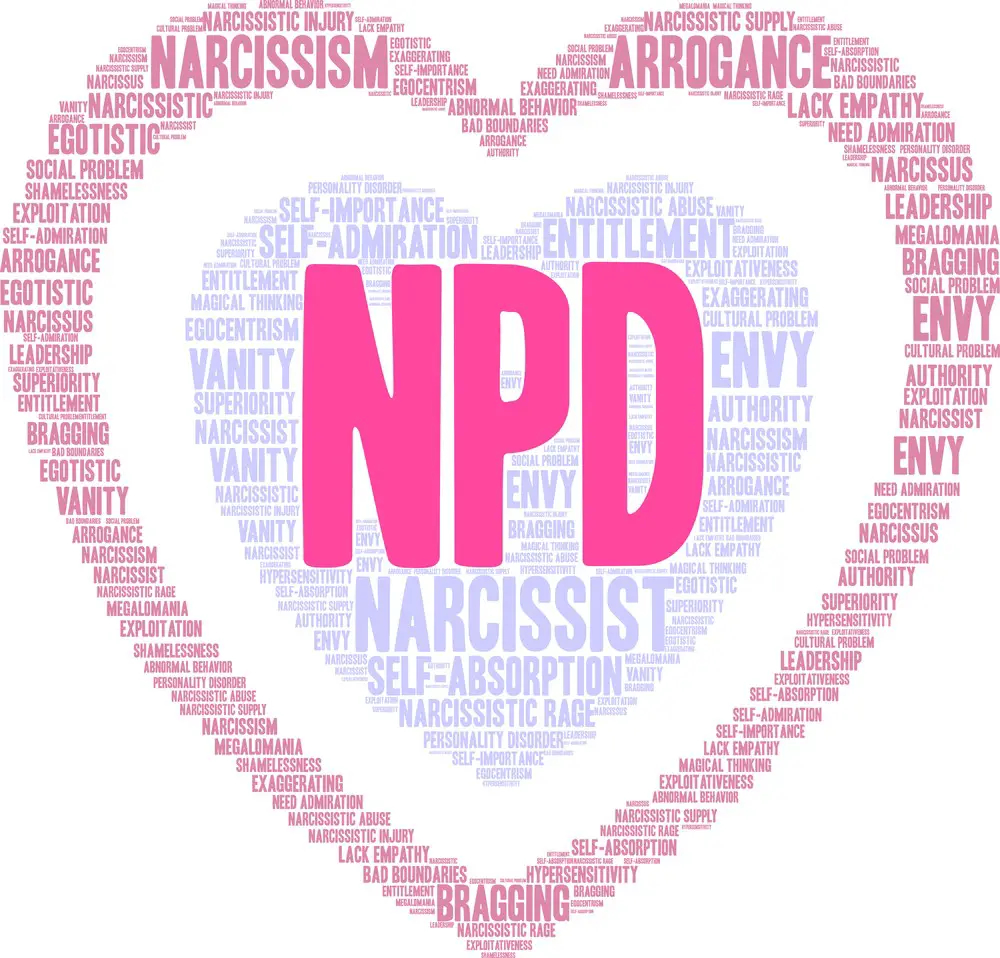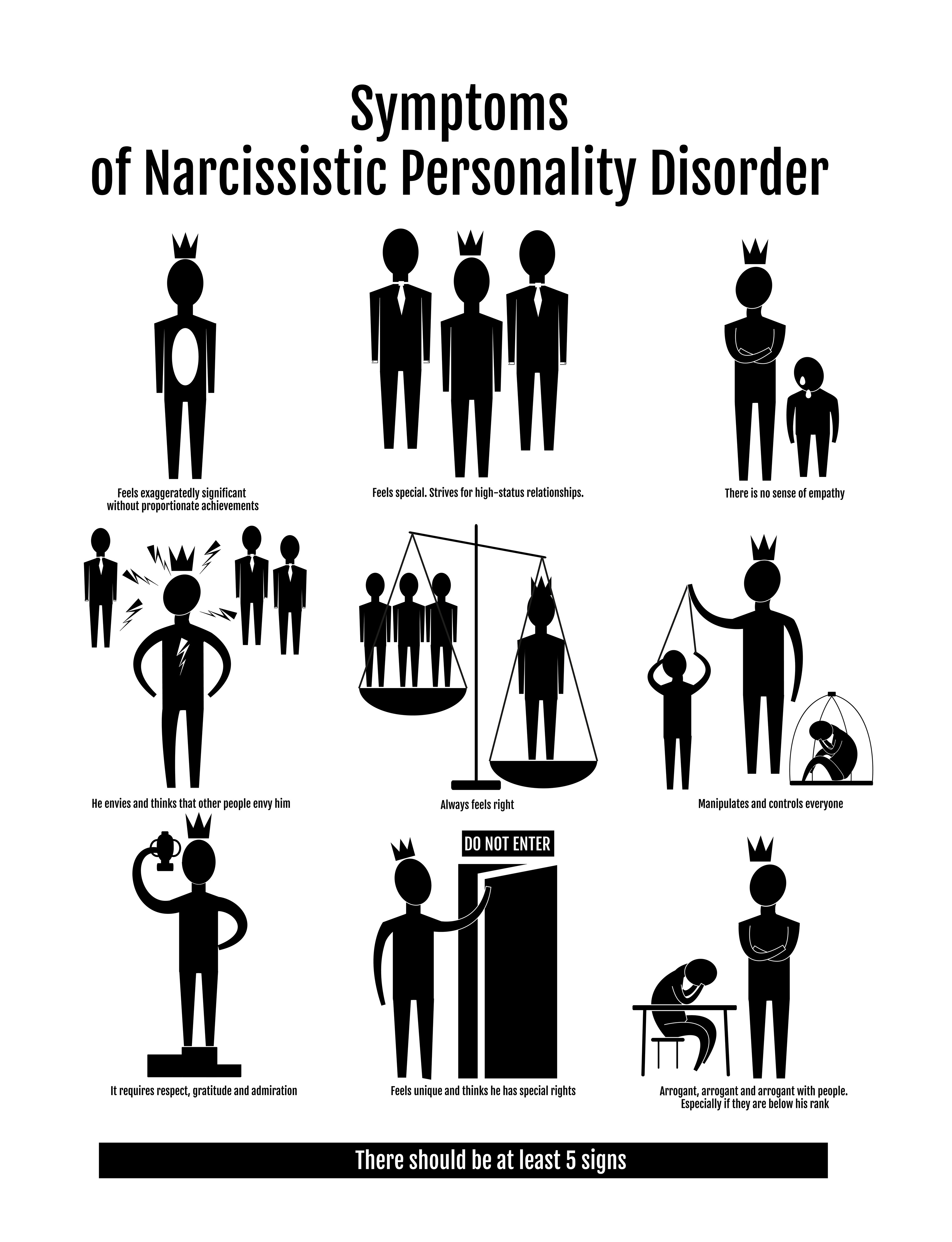As a BetterHelp affiliate, we receive compensation from BetterHelp if you purchase products or services through the links provided
Narcissistic individuals possess an inflated sense of self-importance, a strong need for admiration, and a lack of empathy for others. These traits may inherently make them more prone to cheating in romantic relationships. The act of cheating can provide narcissists with a boost to their self-esteem and a sense of accomplishment, making it an appealing behavior. However, the factors contributing to this behavior are often rooted in complex psychological motivations and patterns that must be considered when addressing their behavior.
Understanding the motivations behind why narcissists cheat is essential for identifying patterns and warning signs. Narcissists may be driven by a need for validation and admiration from others or to create a sense of control over their partner. Additionally, they may display impulsive behavior and demonstrate a lack of remorse for their actions. Awareness of the causes and effects of narcissistic cheating can help partners address these issues more effectively.
Key Takeaways
- Narcissists may cheat due to their inflated self-importance and need for admiration
- Understanding the motivations and patterns helps identify warning signs of cheating in narcissists
- Awareness of the effects of cheating is crucial for addressing relationship issues with a narcissist

Understanding Narcissists and Cheating
Narcissistic Personality Disorder
Narcissistic Personality Disorder (NPD) is a mental condition in which individuals have an inflated sense of self-importance, an extreme need for admiration, and a lack of empathy for others. People with NPD often feel entitled to special treatment, which makes them more likely to cheat in relationships. This behavior occurs as they seek out new sources of admiration and validation, commonly called “narcissistic supply.” Cheating allows them to maintain a sense of power and control over their partners.
Types of Narcissists: Grandiose and Vulnerable
There are two main types of narcissists: grandiose and vulnerable. Grandiose narcissists display an overt sense of superiority and self-importance. They usually have an inflated ego and seek admiration from others to validate their high self-esteem. These individuals might cheat to assert their dominance or gain the attention they deserve.
Vulnerable narcissists, on the other hand, are more introverted and hypersensitive to criticism. They often struggle with inadequacy and may overcompensate by seeking validation through infidelity. Cheating serves as a reassurance, helping them feel more secure in their self-worth and value within their relationships.
While both types of narcissists may cheat for different reasons, they share common traits that contribute to their infidelity. These include:
- Lack of empathy: Narcissists often struggle to understand or care about the feelings of others. Therefore, they may not consider the emotional impact of their infidelity on their partner.
- Manipulation: Narcissists are skilled at manipulating others to get what they want. This ability makes it easier for them to deceive their partner and engage in cheating behavior.
- Entitlement: Narcissists believe they deserve special treatment and privileges, including the freedom to cheat without consequences.
- Insecurity: Narcissists seek validation and attention to soothe their fragile egos. Cheating can offer them a temporary boost in self-esteem.
In summary, narcissists cheat for various reasons related to their personality disorder, such as seeking power, admiration, and validation. Understanding these motivations can help individuals recognize and navigate relationships with narcissists.

Motivations for Cheating in Narcissists
Narcissistic Supply and Validation
Narcissists often crave constant attention and admiration from others. This need for narcissistic supply drives their cheating behavior. When they engage in infidelity, they receive an ego boost and validation from the new romantic interest. This can temporarily soothe their low self-esteem, as they often feel inadequate. Their constant need for praise and validation can cause them to seek out multiple partners to feel desired and special.
Control and Power
One of the reasons why narcissists cheat is to exert control and power over their partners. They frequently use lying and manipulation to maintain this control, which fuels their sense of entitlement and superiority. By cheating, they can manipulate their partner’s emotions, causing them to feel insecure and fearful. This power trip can be addictive to narcissists, who derive satisfaction from dominating others and proving their own worth.
Sense of Entitlement and Superiority
Narcissists typically have an inflated sense of entitlement and believe they are superior to others. This belief can make them feel entitled to infidelity without consequences. Their lack of empathy for others means they do not consider the emotional impact their cheating will have on their partner. Instead, they prioritize their desires and self-interest, rationalizing their infidelity as something they deserve due to their perceived superiority. This reinforces their belief that they are exempt from the emotional and moral standards that apply to other individuals.
Narcissistic Cheating Patterns and Warning Signs
Narcissistic individuals have particular patterns of behavior that may lead to cheating. These behaviors can be warning signs for those who suspect their partner may be cheating. This section will discuss gaslighting and manipulation, projection and accusations, and taking no responsibility.
Gaslighting and Manipulation
A cheating narcissist often uses gaslighting and manipulation tactics to control their partner and keep them doubting their perceptions. Gaslighting involves lying and distorting the truth, making partners question their sanity and memories. This manipulation makes it easier for the narcissist to cheat without getting caught. Some warning signs of gaslighting include:
- Denying or trivializing your feelings
- Withholding affection or attention
- Dismissing your concerns or fears
It’s important to trust your instincts and seek support if you feel you’re being manipulated or gaslighted by your partner.
Projection and Accusations
Narcissists commonly use projection, accusing their partners of the same behaviors they exhibit. For instance, a cheating narcissist might accuse their partner of cheating without any evidence or basis. This tactic deflects attention away from the narcissist’s actions and creates confusion in the relationship. The following behaviors could be red flags for projection:
- Sudden, baseless accusations of cheating
- Overreacting to minor incidents
- Insisting on going through your phone or messages
If you notice these warning signs, it could indicate that your partner is projecting their cheating behavior onto you.
Taking No Responsibility
Narcissists often have poor impulse control and struggle to take responsibility for the consequences of their actions. In a relationship, this means they may cheat without feeling remorse. Instead, they will blame external factors or their partner for their behavior. Some warning signs indicating a lack of responsibility include:
- Consistently blaming others for their actions
- Refusing to apologize or admit wrongdoings
- Dismissing the impact of their cheating on the relationship
Recognizing these patterns and warning signs can help determine whether your partner may be a cheating narcissist. Trust your instincts and seek support from trusted friends, family members, or a therapist if you suspect your partner may be cheating.

Effects of Cheating on Relationships
Abuse and Trauma
Cheating by a narcissistic person can lead to significant abuse and trauma in a relationship. A narcissist’s infidelity often serves as a method of control, where they seek validation from multiple sources to enhance their self-worth. Due to their difficulty in showing empathy, narcissists are generally unable to understand or care about the emotional consequences of their actions. This can lead to immense emotional pain and guilt experienced by their partners.
Narcissists’ lack of empathy and guilt allows them to justify their cheating, often accusing their partners of being overly jealous or controlling. While some narcissistic individuals may engage in online infidelity, this does not diminish the severity of their actions and the emotional consequences for their partners.
Self-Esteem and Emotional Well-Being
Partners of narcissists often experience negative impacts on their self-esteem and emotional well-being due to infidelity. As the cheating continues, they may doubt their worth and begin to internalize the false claims made by the narcissistic person. This can lead to declining self-esteem and emotional well-being, as they constantly feel invalidated and emotionally abandoned.
Narcissists also tend to use their partners’ emotions to maintain a one-sided focus on their own needs. They will often manipulate their partners and hinder their ability to maintain healthy boundaries, further wearing down their self-esteem and emotional strength.
The changes caused by the impact of infidelity often leave partners in a painful struggle to reclaim their sense of value and emotional well-being. This often requires them to distance themselves from the narcissistic person to begin the healing process.

Addressing Cheating in a Relationship with a Narcissist
Confronting a Narcissist
When addressing cheating in a relationship with a narcissist, it is crucial to approach the issue with caution. Confronting a narcissist about their infidelity can be challenging, as they often use tactics such as lying, manipulation, and projection to avoid responsibility. It is essential to remain calm and focused on the issue, gather evidence if necessary, and be prepared for potential gaslighting or deflection.
Setting Boundaries
Establishing clear boundaries is important when dealing with a narcissist in any relationship. In the context of cheating, this means communicating your expectations for honesty, transparency, and fidelity. Setting these boundaries can help you regain control over the situation and make it clear to the narcissist that their cheating behavior is unacceptable. It is essential to remain firm in your stance and ensure that the narcissist understands and respects the boundaries put in place.
Deciding to Stay or Leave
Ultimately, one must make the difficult decision of whether to stay in the relationship or leave. This decision may be influenced by factors such as the severity of the cheating, the narcissist’s willingness to address the issue, and your tolerance for their behavior. Reflection and self-assessment are crucial in determining what is best for personal well-being and overall happiness. It may be helpful to seek support from friends, family, or professional therapists during this time. Remember, choosing to leave a relationship with a narcissist can be an act of self-preservation and self-respect.
Frequently Asked Questions
Why do narcissists tend to cheat?
Narcissists cheat because they seek validation and admiration from others. They want to feel powerful, desired, and in control. They often have a sense of entitlement, believing they deserve special treatment and are above the rules that govern others. When a relationship doesn’t provide the validation they crave, they may turn to cheating to fulfill their needs.
Reasons for narcissist infidelity
There are several reasons why narcissists engage in infidelity, including:
- Seeking validation or admiration from multiple partners.
- Desire for power and control over others.
- Lack of empathy for their partner’s feelings and needs.
- Fear of abandonment or rejection leads them to secure multiple sources of attention.
- Difficulty maintaining long-term relationships due to their self-centered nature.
Are narcissists unfaithful often?
Though not all narcissists cheat, they have a higher propensity for infidelity than others. Their need for validation, admiration, and control can make them more prone to seeking multiple partners and engaging in cheating behaviors.
Do narcissists regret their affairs?
Narcissists may not feel genuine remorse or regret for their affairs. They may feel momentary guilt or embarrassment, but ultimately, they believe their actions are justified and in pursuit of their needs. Their lack of empathy for their partner’s feelings makes regret unlikely.
How to detect a cheating narcissist?
Detecting a cheating narcissist may be challenging, but some potential signs include:
- Sudden changes in behavior or appearance.
- Being evasive or secretive about their whereabouts.
- Becoming emotionally distant or unavailable.
- Spending more time on their phone or social media.
- Frequently accusing their partner of being jealous or possessive.
Narcissist cheating patterns
Narcissists may have specific patterns in their infidelity, such as cheating with multiple partners, engaging in affairs during times of stress or difficulty, or seeking out people who will provide them with the admiration and validation they desire. However, these patterns may not be consistent across all narcissists, and each individual may have unique behaviors in their cheating.
- 3 Ways Wearing a Hat Can Help Lower Your Stress Levels - April 19, 2025
- Breaking the Silence: Why Men’s Mental Health Matters More Than Ever - April 15, 2025
- How to Transform a Home’s Patio Space into a Relaxing Space - March 23, 2025
This site contains affiliate links to products. We will receive a commission for purchases made through these links.



